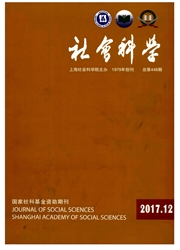

 中文摘要:
中文摘要:
新世纪以来,伴随着单位社会的转型,尤其是一些国有企业的衰败破产,部分老旧单位社区呈现出棚户区化、居民异质化、底层化等特征。国内已有研究大多从“外部性”、“问题性”角度入手,较少关注社会转型带来的多重风险性对于社区治理的重大影响,对社区自身具有的、抵御风险的“内生性”优势重视不足。“社区抗逆力”视角立足于社区风险危机管理与预防,分析社区内部居民的风险应对能力、社区认同感、公共参与行为等主体性优势,同时挖掘家庭以及社区分权动员结构等社区内部环境优势,再配之以政府、社会组织、社会工作等外部力量支持,形成一整套衰落社区重建以及抵抗风险的治理框架。这种思路有利于探索中国单位制度变迁对于基层社会治理的辩证意义,也利于我们有效继承单位社会传统,构建中国特色的社会治理模式。
 英文摘要:
英文摘要:
With the coming of new century, Chinese Danwei Society has dramatically changed, particularly due to some state-own enterprises got impoverished, some community for large enterprise workers (Danwei Community) has been declined to be a urban slum, in where residents become divided seriously and some declined to underclass. In China, current researchers about declined Danwei Community ,with a problem perspective viewing Danwei community as a community in disorder, draw more attention to exogenous support from social policy, ignoring endogenous development and risk management of Danwei Community itself. Instead, the framework of "community resilience" ,which is a measurement of sustainable ability to respond to and recover from adverse situation, as a new perspective of community governance, focuses on either endogenous development of community itself or risk management of community, including the content of anti-risk capability of residents, community identi- ty and participation of community public issue, as well as the exogenous support from government and civil society. This new theoretical and practical framework will be significant to construct a new community rebuilding way in the post-danwei age.
 同期刊论文项目
同期刊论文项目
 同项目期刊论文
同项目期刊论文
 期刊信息
期刊信息
